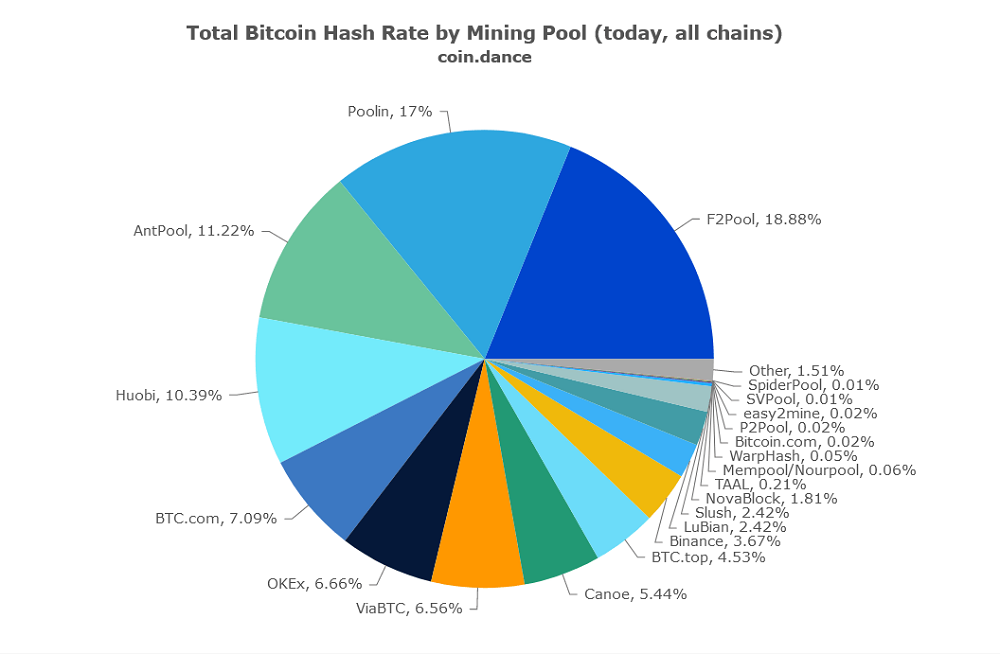Craig Wright, the man who claims to be Bitcoin inventor Satoshi Nakamoto, says Bitcoin is not and was never intended to be, censorship-resistant.According to Wright, who wrote in a blog post from July 10 titled What is Censorship Resistance, the common assumption that Bitcoin holders are protected from economic censorship is nothing but a myth.And the scary thing is, Wright might be right.Craig Wright: No Censorship Resistance on BitcoinWright’s latest blog post drew analogies between Bitcoin and regular cash and coins. If someone spends on a coffee using cash, no authority would bat an eye. However, if someone attempted to buy just about anything using ,000 in cash, states Wright, alarm bells would inevitably ring. Wright wrote:“The myth that Bitcoin is designed to be
Topics:
Greg Thomson considers the following as important: AA News, btcusd, btcusdt, craig wright, Editorials, Opinions, Satoshi Nakamoto
This could be interesting, too:
Chayanika Deka writes SEC Closes Investigation Into Gemini, Winklevoss Seeks Reimbursement
Wayne Jones writes CZ Criticizes Safe Wallet’s Post-Mortem on Bybit Hack
Mandy Williams writes Bitcoin ETFs Record Over .6B in Outflows in the Past 2 Weeks
Wayne Jones writes This Trending AI Token Hits New ATH After Binance Listing
Craig Wright, the man who claims to be Bitcoin inventor Satoshi Nakamoto, says Bitcoin is not and was never intended to be, censorship-resistant.
According to Wright, who wrote in a blog post from July 10 titled What is Censorship Resistance, the common assumption that Bitcoin holders are protected from economic censorship is nothing but a myth.
And the scary thing is, Wright might be right.
Craig Wright: No Censorship Resistance on Bitcoin
Wright’s latest blog post drew analogies between Bitcoin and regular cash and coins. If someone spends $5 on a coffee using cash, no authority would bat an eye. However, if someone attempted to buy just about anything using $20,000 in cash, states Wright, alarm bells would inevitably ring. Wright wrote:
“The myth that Bitcoin is designed to be ‘censorship-resistant’ is just that. Bitcoin is electronic cash. As with cash, the use of electronic coins (bitcoin) remains private and is unlikely to be traced for small amounts. As it scales, the use of bitcoin or cash needs to be reported and monitored.”
But even if such a transaction were to be reported, what action could realistically be taken to freeze, reverse or stop it? According to Wright, it wouldn’t be too difficult.
Government Can Seize Your Bitcoin
Wright states that for a government agency to freeze or reallocate a Bitcoin user’s funds, legal cooperation would only be required by four entities.

These would be the four largest Bitcoin mining pools seen above, which between them account for 57% of Bitcoin’s hash rate at the time of writing. Wright stated:
“There are never more than four entities that would be needed to meet a court order of any kind. In other words, a court order against four Bitcoin nodes (miners) may result in a transaction being required to be frozen and then reallocated.”
One could argue that such actions have already been taken on Bitcoin, but not by governments. In 2010, what came to be known as the “overflow incident,” two Bitcoin addresses were mistakenly granted 92.2 billion Bitcoin each. The Bitcoin network briefly went down, and over the next five hours, miners soft forked onto a new chain with updated consensus rules that erased the erroneous transactions.
In 2012, when a block containing more transactions than normal wreaked havoc on the network, miners took similar action to fork away from the problematic chain, and proceed on a new chain as though nothing ever happened.
The ability of Bitcoin’s miners to change consensus rules by majority agreement is a feature, not a bug. But it is also proof that what many regard as an immutable blockchain is not actually immutable at all.
Bitcoin’s Retired Alert Key
For almost five years, Craig Wright has claimed to be Satoshi Nakamoto, the anonymous inventor of Bitcoin. Therefore, he claims that the alert key, which was previously built into Bitcoin, was created by him. And, claims Wright, it is proof that Bitcoin was never intended to be censorship-resistant at all.
The alert key is a now-retired feature of Bitcoin’s, which saw system administrators given the ability to send alert calls across the entire Bitcoin network. Messages could be sent directing miners to reject a certain block or freeze a certain transaction. Twelve alerts were sent out between 2012 and 2014 before the feature was removed from the code in 2016. Wright stated:
“Some people try to tell you that ‘censorship resistance’ means that you cannot freeze funds. Again, such people are in error. When I introduced the alert key, fulfilling some of the aspects of what I said could be done in the white paper, I allowed nodes to freeze unspent transaction outputs (UTXOs) and transactions.”
Is Wright Right?
One of Wright’s prevailing narratives is that he designed Bitcoin to work within the common legal framework. This narrative runs contrary to that of the cypherpunk movement, which viewed Bitcoin as a way to subvert laws, and bypass governments. Wright wrote:
“Bitcoin is not designed to stop the government from freezing bitcoin, and it is not censorship-resistant’. Bitcoin is public. What Bitcoin does is work within the rule of law.”
In Wright’s view, all that would be required to reverse a Bitcoin transaction is the cooperation of Bitcoin’s miners with legal authorities. As stated before, only four mining pools make up a majority of Bitcoin’s mining power – and, those miners have been shown to be able to reverse transactions before.
Regardless of the cryptocurrency community’s opinion of “Faketoshi” Craig Wright, even a stopped clock is right twice a day.
It is indeed possible to censor Bitcoin transactions. Whether such a thing becomes commonplace will depend on how well Bitcoin’s miners can stand up to legal pressure.
